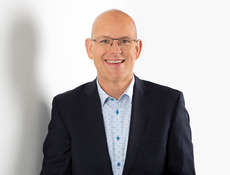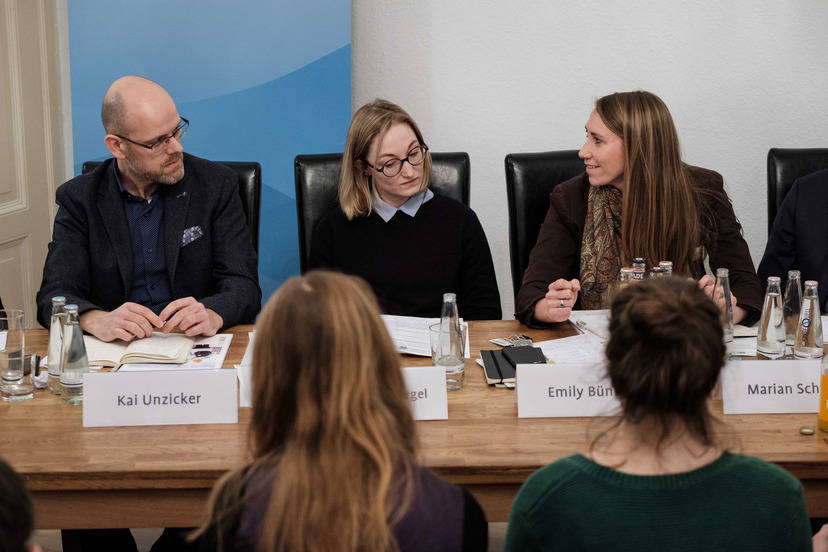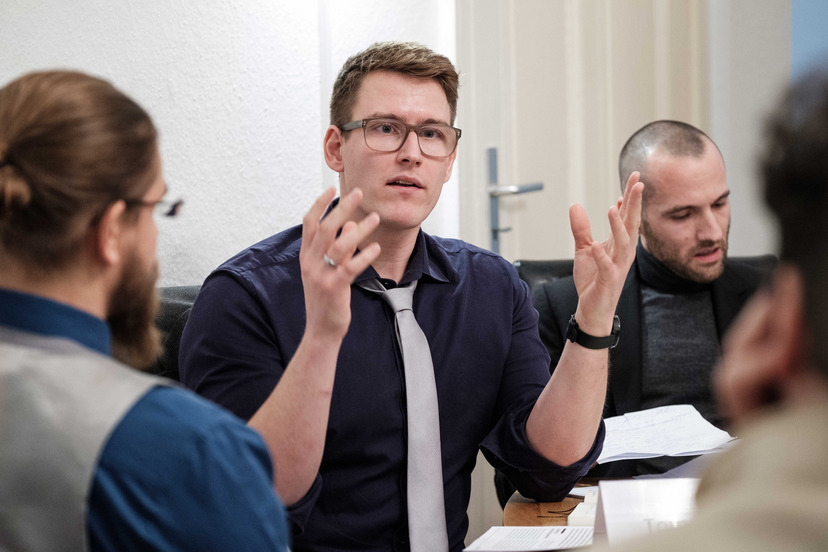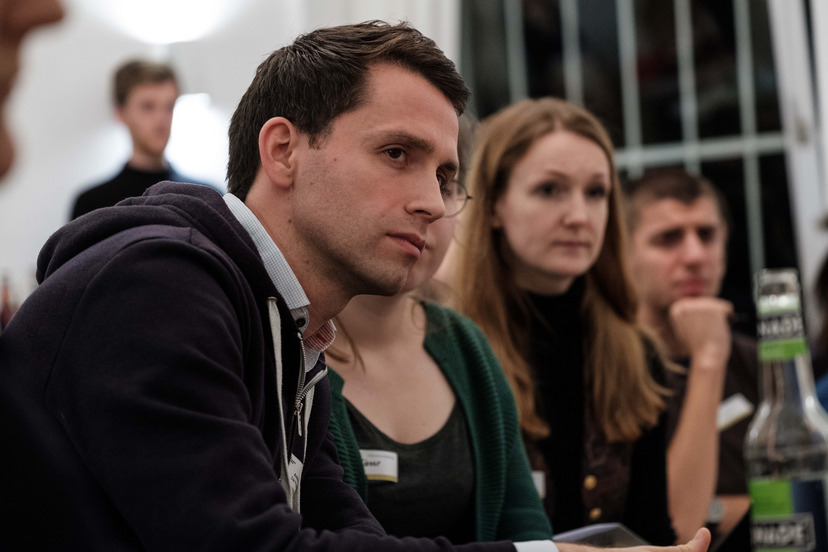Trust in political institutions is one of the nine dimensions comprising the Bertelsmann Stiftung’s concept of social cohesion. The most recent figures on social cohesion in Germany were provided by the 2017 Social Cohesion Radar. They showed strong levels of cohesion in the country that have remained stable over time. However, the study also identified some risks: a majority of Germans saw the social order as being unjust; there was still a visible difference between respondents in eastern and western Germany; and the public had a low level of trust in institutions, such as political parties and the federal and state governments.
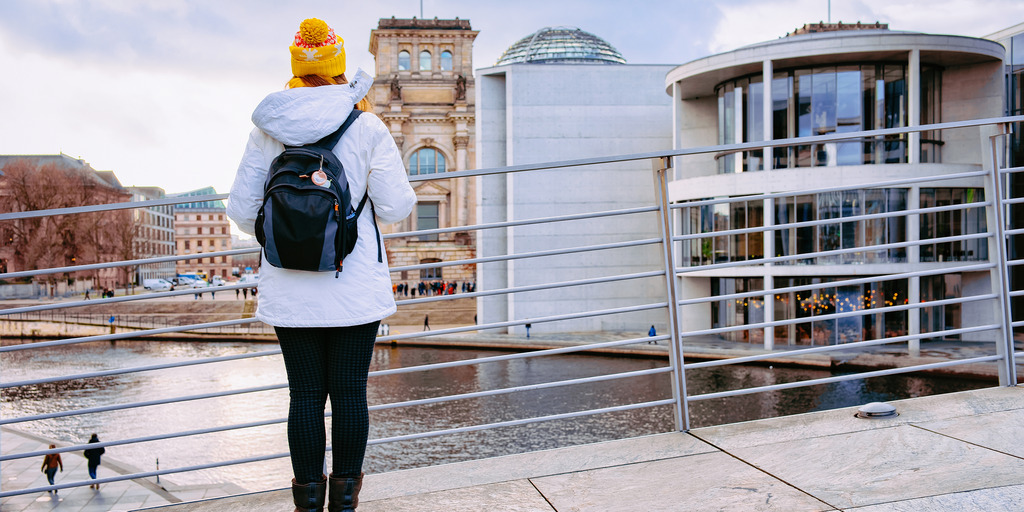
© Shutterstock / Roman Babakin
Is waning trust putting social cohesion at risk?
On January 17, 2019, representatives of the Bertelsmann Stiftung and Das Progressive Zentrum met in Berlin with roughly 50 experts from the realms of politics, public administration and science to discuss social cohesion and declining trust in institutions.
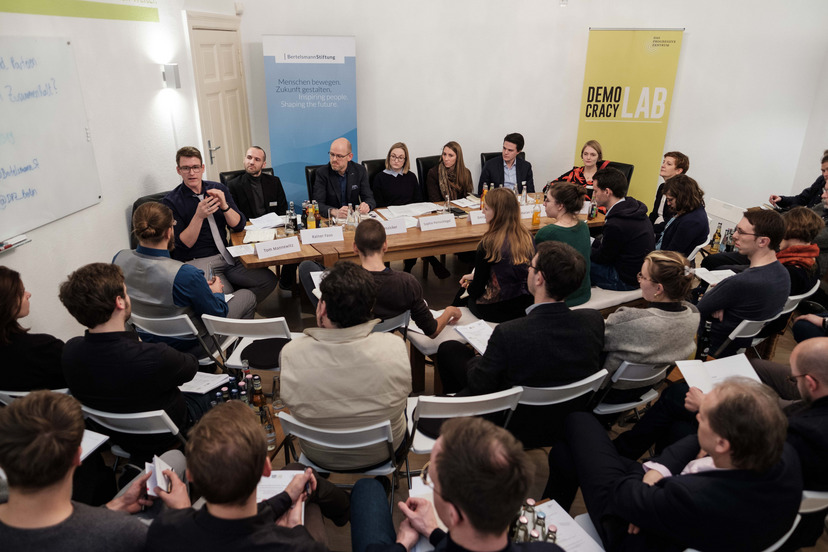
© Snice Filmproduktion
The panel discussion held in Berlin on January 17, 2019 featured representatives of the Bertelsmann Stiftung and Das Progressive Zentrum.
In view of these findings and several other factors, including the months-long difficulties in forming a new government following the 2017 federal elections and the crises they spawned, and, last but not least, the growing specter of populism, we decided to take a closer look at the situation. We commissioned two research teams to use the comprehensive data set provided by the Social Cohesion Radar to examine the causes of declining trust in politics and political parties, whether this trend poses a danger to cohesion, and how institutions can win back trust.
The findings of this specially commissioned evaluation served as a frame of reference for our discussion, which was moderated by Sophie Pornschlegel (Das Progressive Zentrum). The panel included:
- Emily Büning, Organizational Federal Business Manager, Bündnis 90/Die Grünen
- Ria Schröder, Federal Chairperson, Jungen Liberalen (Young Liberals)
- Marian Schreier, Mayor of the City of Tengen
Study Findings
Before the panel discussion got underway, Kai Unzicker (Bertelsmann Stiftung), Junior Professor Tom Mannewitz (Universität Chemnitz) and Rainer Faus (Pollytix) presented the findings of the substudies.
The studies showed that most Germans are indeed in favor of democracy. There is nevertheless a slight downward trend in this figure, at least in the short term. In general, trust in the various institutions is also stable, albeit at a low level. Trust in the federal government, however, has declined in recent months. The study also revealed differences between Germany’s eastern and western regions: the eastern part of the country showed in principle lower levels of acceptance of democracy, but also lower levels of satisfaction with democracy in action than in western Germany. In other words, individuals with a higher social status tend to show a greater trust in parties. Lower levels of trust in parties are felt particularly by those individuals who see greater injustice and who are more anxious about current social developments.
If political decision makers want to regain trust, they are going to need imagination, hope and courage.
Marian Schreier
Discussion
The discussion focused on three key questions: What does this increasing distrust felt by the population mean for cohesion? What changes can political parties and individual politicians make in order to halt the erosion of trust and legitimacy among the general population? Are there any visionary approaches or new political styles that can potentially revive widespread trust in politicians’ and the political process’ ability to find sustainable solutions to the challenges we face?
To get more people to participate, political parties will have to become more attractive. They have to create a situation in which people have no better way to vent their frustrations than by getting involved.
Ria Schröder
The panel members made several suggestions as to how to regain trust. Emily Büning argued that politicians should do more to engage in dialogue. Ria Schröder pointed out that there is no better way to inspire enthusiasm for politics and democracy than by encouraging people to get involved themselves and thereby experience what kind of impact they can have. Marian Schreier criticized politicians for being allowing themselves to remain trapped by the logic of feasibility and thus failing to put forth any inspiring visions.
The discussion demonstrated the extent to which all political parties continue to seek ways to win back public trust, by using clear language, for example, or taking up unequivocal positions and encouraging increased participation. However, it was also clear that the largest potential for creating trust is often found where people come into contact with politics most directly, that is, in their local communities. In other words, when municipal communities are strengthened, there is an associated increase in trust in the political system. This trust is a key component in fostering social cohesion.
At one point, the study states the following (p. 19): “More and more people are becoming aware that democracy is not something to be taken for granted, that they have to stand up for it and adopt a firm position. People’s willingness to engage in volunteer work is high, and most people experience their local neighborhoods or towns to be community-minded and eager to cooperate. ... One doesn’t combat uncertainty by fostering a desire for a supposedly more stable past, but rather by inspiring hope in a better future. The individuals who lead this country and shape its policies are hereby called upon to lead by example.”
